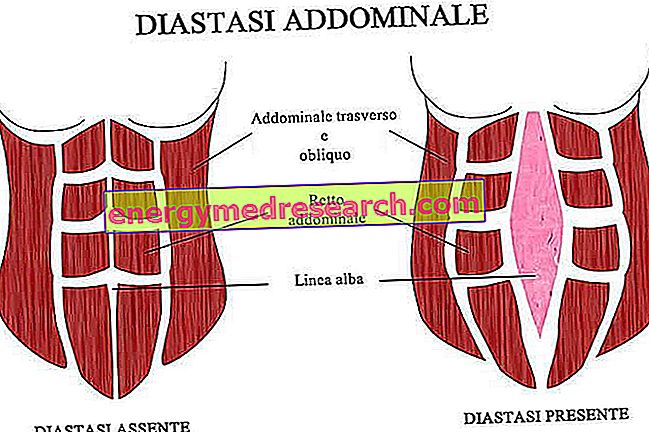What's this
What is chicory coffee?
Chicory coffee is a drink made from the infusion - at high temperature - of toasted chicory root powder. Chicory is a fairly general term; these are called herbaceous plants of the Asteraceae Family (Compositae), genus Cichorium, but the species used for the drink in question is the intybus .

Chicory coffee is, to be honest, an improper wording. Coffee is the common name of plants belonging to the genus Coffea usually used for the production of traditionally defined beverages.
Today, chicory coffee is considered a typical American product and in particular of the city of New Orleans - Louisiana. However, not only was it not an American who invented chicory coffee, but the discovery took place thousands of miles to the east, in Europe.
At the beginning of the nineteenth century, in France - where chicory is widespread - following the blockade of imports of various basic necessities imposed by the Allies against the emperor Napoleon (1808), coffee disappeared from the national market; so it was that the French people had to make up for this lack by finding a surrogate that became the chicory coffee. From here it reached as far as the colonies as, indeed, Louisiana. Even after the resumption of the French importation of traditional coffee, that of chicory remained in the popular traditions of various places; sixty years later this custom became so entrenched that France reached the record of 16 million pounds for the sole export of chicory in North America and Australia.
In Italy, on the other hand, this drink became popular only in the 1900s and in particular during the great war conflicts, when very few could afford the purchase of real coffee.
Chicory coffee has no or negligible calorie intake. On the contrary, it seems to have relevant phytotherapic properties even if, as often happens, many sources of disclosure tend to exaggerate or distort concepts that are otherwise relevant.
Property
Chicory composition
Before listing the "possible" phytotherapic characteristics of chicory coffee, let's briefly analyze the chemical-nutritional composition of the plant and / or drug in question - leaves and roots. Recall that to produce coffee, chicory - or rather, the root - must first be toasted and then infused in hot.
Leaves and roots of chicory contain active herbal ingredients such as: sesquiterpene lactones - including bittering substances - polyphenols - especially flavonoids - organic acids, hydroxycumarins and soluble dietary fiber - inulin.
Properties of chicory coffee
- The bittering substances of chicory - sesquiterpene lactones - have appetizing properties and increase appetite. The same molecules give chicory coffee a good digestive action because they gently stimulate the production of gastric juices - stimulating gastro function. The cholagogue and choleretic effects, on the other hand, are greater, which more generally improve the biliary function - increasing the hepatic secretion of the digestive fluid and promoting contractions of the gall bladder to transfer it into the intestinal lumen. For this reason, chicory coffee is abundantly used as an eupeptic in the treatment of biliary dyspepsias.
- Organic acids and flavonoid polyphenols increase renal filtration. Associated with the abundance of water in the drink, they give the chicory coffee diuretic and purifying properties.
- Inulin, a soluble fiber, is used as an anti-constipation and a prebiotic. Unlike insoluble fibers, inulin also appears to perform a balancing function and "generally" does not worsen the symptom of liquid stools. On the other hand, the relevance of inulin in the treatment of diarrhea is controversial. Since it is a soluble fiber, reaching the intestinal lumen and dissolving in the aqueous matrix, it can increase its solidity. Nevertheless, in cases of severe diarrhea, this remedy is considered unsuitable or even counterproductive. By the same principle, chicory is used in the preventive and therapeutic treatment of irritable bowel and diverticulosis / diverticulitis diarrhea. Note : inulin, which is abundant in the chicory plant, is not as abundant in the resulting coffee.
- Due to other still unclear mechanisms, chicory seems to exert an adsorbent effect, counteracting flatulence, meteorism, abdominal tension and swelling.
Other properties of chicory
Chicory, the drug that can be obtained and above all the extracts, also have many other properties. Some animal studies have shown efficacy:
- Negative inotropic chronotropic on heart rate;
- Cholesterol-lowering agent on total cholesterol;
- hypoglycemic
- Antioxidant - hepatoprotective.
It is not clear whether the same effects can occur in the human body. However, it is unlikely that chicory coffee, given the modest concentration of the active ingredients, can have an impact identical to that of extracts or dry drugs.
What is it for?
What is chicory coffee for?
In compliance with what is specified in the paragraph above, chicory coffee can be used not only for taste reasons, but also as a phytotherapeutic remedy in various circumstances; let's see which ones.
- Without caffeine, like barley coffee, chicory coffee can replace the traditional one without necessarily having to resort to traditional decaffeinated powder - known to be subjected to chemical decaffeination with solvents;
- Due to its aperitif property, chicory coffee can be consumed before meals as a remedy for inappetence; it is a valid alternative to traditional non-alcoholic drinks - coca cola, other carbonated, fruit juices etc .;
- We have said that chicory coffee is a mild stimulating gastro; for this reason it is considered a good solution against hypochloridria and the associated gastric digestive difficulty;
- Colagogo and choleretic, chicory coffee is a good solution to improve liver production and gall bladder emission. These properties are advisable in case of digestive difficulties due to: large or very fatty meals, absence of gall bladder - for cholecystectomy - sediment in the gall bladder - which predisposes to gallstones - etc .;
- The two applications we talked about make chicory coffee a good eupeptic remedy;
- Chicory coffee is a diuretic, which is why it is suitable for all circumstances in which it is necessary to encourage the excretion of urine. For example, in the absence of medical or pharmacological complications, the use of chicory coffee can improve the expulsion of metabolic residues of drugs, ethyl alcohol, etc. Some believe that increasing diuresis can also improve, in a general sense, water retention in interstitial tissues and cellulite. It is not a completely acceptable principle. On the contrary, under medical consultation, chicory coffee - like other diuretic herbal remedies - can assist therapy against primary arterial hypertension;
- The prebiotic, anti-constipation and more generally regulatory functions of the chicory coffee alve are instead controversial; this is because, although chemically water-soluble, inulin is largely fixed in plant tissue. This means that even after roasting and infusion, this remains mostly bound to the solid portion and only dilutes itself in a negligible way, not increasing concentration in the drink;
- On the other hand, the adsorbing effect of gases appears to be thicker, reducing flatulence, meteorism, the sensation of swelling and abdominal tension of a nervous or idiopathic nature;
- The antioxidant and hepatoprotective effects are mainly attributable to polyphenols and vitamin C. Some molecules - especially ascorbic acid, but also some polyphenols - suffer negatively the treatment with heat and for this reason their concentration in chicory coffee is very reduced compared to plant extract or drugs. The fact remains that in a "hepatoprotective" diet rich in fruit and vegetables, even chicory coffee can do its part;
- In folk medicine, chicory coffee is also recommended in the treatment of urinary tract infections, especially in female cystitis. In truth this effect is not scientifically proven;
- The same applies to the negative chronotropic effects inotropic, hypoglycemic and cholesterol-lowering. Chicory coffee is not a remedy for lowering cholesterol and blood sugar and does not reduce the frequency of heart beats.
Side effects
Side effects of chicory coffee
Chicory coffee has no noteworthy side effects. To signal the existence of an allergic form to Asteraceae.
Contraindications
Contraindications of chicory coffee
The contraindications of chicory coffee are mainly related to its stimulating gastro effect. By increasing gastric secretion, this drink can be harmful to gastritis and peptic ulcers; sometimes it has an undesirable effect also on the excessive gastro esophageal reflux.
The criterion of "reasonableness" applies during pregnancy. Chicory has a mildly stimulating effect on uterine contractions. Obviously, in coffee the responsible active ingredients are present in almost negligible concentrations; however it is advisable not to overdo it. No contraindications for breastfeeding are reported.
In the event of severe diarrhea, with the possibility of infection, intoxication or infestation, or in the presence of chronic inflamatory diseases - straight ulcerative colitis, Crohn's disease, etc. - better to avoid taking chicory coffee and contact a doctor immediately.
We said that in chicory coffee, inulin is poorly concentrated. However, remember that a chronic excess of inulin can alter the intestinal absorption of nutrients and drugs.
Exceeding the chicory coffee, as with any other beverage, can reduce the half-life of pharmacological active ingredients. Furthermore, the increase in diuresis, especially associated with strong sweating and poor dietary intake, could worsen the lack of potassium and magnesium - manifested by muscle cramps, weakness, etc.
How you do it
How is chicory coffee made?
Chicory coffee is a beverage obtained by high temperature infusion of dried, toasted and powdered C. intybus root .
A powdery preparation is available on the market, very similar to that of traditional coffee, but based on chicory. If you want to do it at home, just follow this procedure:
- Carefully wash and dry the chicory roots;
- Cut them into thin slices;
- Dry them, with the help of a dryer - even at home - or in the sun;
- Toast the slices. This can be done effectively on the grill, on a plate or on a pan. Note : avoid non-stick instruments; Teflon would burn and become harmful. It is advisable to reach the necessary temperature progressively, observing the change in color of the chicory root slices. They must not become black; but rather brownish;
- Pulverize everything with a mortar; to avoid the mixer or the blender, they would make most of the dust fly;
- Produce chicory coffee with the desired technique: using the mocha or a classic tea / herbal tea infuser.



